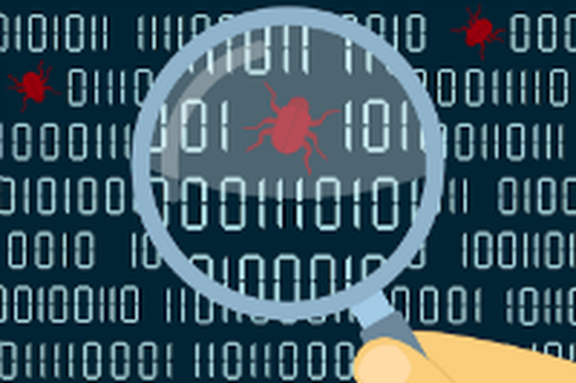This week, the National Institute of Standards and Technology's 2021 Federal Workforce Summit highlighted the latest progress of a new Neurodiverse Federal Workforce pilot program happening at the National Geospatial-Intelligence Agency (NGA), while the non-profit agency Made by Dyslexia debuted a new video podcast episode detailing how the U.K.’s signals intelligence and information assurance agency actively recruits and employs neurodiverse individuals as spies.
Both presentations demonstrated how neurodivergent men and women with an interest in cybersecurity are finding new opportunities to bring their unique ways of thinking to the government workforce. Additionally, they revealed the importance of security and cyber teams taking the lead on neurodiversity rather than deferring to the HR department for guidance and instruction. This includes not only actively recruiting neurodiverse individuals and embracing their unique strengths, but also training managers and co-workers on how best to create an office environment that’s friendly to neurodiverse employees.
Neurodiverse Federal Workforce pilot program
The Neurodiverse Federal Workforce pilot program is a joint project of the NGA, the R&D nonprofit Mitre, and Melwood, a nonprofit that helps people with disabilities find employment.
Launched in December 2020, the program accepted four individuals with neurodiverse conditions (including people on the autism spectrum) as its inaugural cohort of cybersecurity trainees. Following an intensive week-long training and interviews boot camp, the interns – all of whom possess collegiate degrees – were placed geospatial and imagery analysis roles at the NGA. The interns are now nearing the end of their half-year stint at the NGA and will soon be ready to transition into their next career roles.
“What initially attracted my attention [to] the pilot was how it addressed two government wide priorities: the first being the shortage of cyber talent, and the second of course increasing the employment of individuals with disabilities,” said Natalie Veeney, acting director of the diversity program at the Office of Personnel Management, which helps support the program. “Expanding recruitment to more diverse talent pools is one of those key things that that our government can do when it comes to cybersecurity and shortage of talent.”
A key element to the program, she said, is “culture building” – specifically, educating managers and the greater workforce on how to work and communicate with neurodiverse individuals, while providing neurodiverse workers with job coaching and support “to get them settled and oriented to the environment.”
“It's going to be a model for agencies to expand their workforce with neurodiverse talent,” Veeney added.
If indeed that is the case, then this pilot program has already yielded some key lessons that other federal agencies can apply toward their own similar initiatives. For instance, Veeney said that some of the interns felt overly “smothered” by the constant support their received.
“Individuals like to have the support around them to reach out to if they need it, but it doesn't necessarily mean that the reach-in has to be constant, or is even always needed,” said Veeney. Sometimes the feedback was: “Leave us alone, let us go to work,” she added.
The pilot program stems from a grand prize-winning proposal by Mitre as part of the OMB and General Service Administration’s Government Effectiveness Advanced Research Center Challenge – a competition seeking solutions to the federal government’s most difficult management problems.
Veeney praised the fact that the pilot is managed not by the NGA’s HR department or diversity and inclusion staffers, but by its actual cybersecurity program’s office. “That's an important distinction,” she noted, because this demonstrates that there is incentive and motivation among the cyber team to include neurodiverse individuals among their ranks.
GCHQ recruits dyslexic spies
Across the Atlantic, the Government Communications Headquarters (GCHQ) has been among the most forward-thinking federal agencies in terms of recruiting neurodiverse individuals for their unique skill sets.
While most people know dyslexia as a reading disability, they may not realize that the condition also comes with certain advantages. For instance, dyslexic individuals tend to be good at recognizing patterns in data and events, and seeing matters from a wholistic point of view, according to Kate Griggs, founder of global charity Made By Dyslexia.
“Dyslexics have amazing imaginations, and a great ability to innovate – seeing what could be, not what is, and imagining possibilities, rather than actually looking at where we are now,” said Griggs, in an interview with SC Media.
Such attributes are especially valuable to cybersecurity and intelligence organizations, including the soon-to-be-launched National Cyber Force – a joint initiative between the Ministry of Defence and GCHQ. GCHQ is an intelligence and security organization responsible for providing signals intelligence and information assurance to the government and armed forces of the U.K.
In latest “D.Spot” video podcast from Made by Dyslexia, Griggs discussed this very topic with GCHQ Director of Strategy Jo Cavan and two anonymous GCHQ spies working for the intelligence and security agency.
“Ever since our inception we've really valued people who can think differently,” said Cavan. “A lot of the work we do is about tackling really challenging problems and about solving complex issues. And these challenges require people who do think differently and often people who think differently really thrive in those roles.”
During the podcast, Griggs noted that a senior member of GCHQ once described his dyslexic thinking as being able to “see hundreds and hundreds of different bits of information, and suddenly they all come together and gel and it's a bit like… a spark or a light bulb moment.” This description matches up nicely with the spies’ personal accounts.
One of the featured spies who went by pseudonym Charlotte works as intelligence analyst at a 24/7 operations center. “I'm often looking through a lot of data, and I find that my dyslexia helps me to see the bigger picture or spot patterns that aren't always obvious to everyone else around me,” said Charlotte. “I also find that my approach to finding solutions is very different. I often think quite fast and outside of the box, and this is key to my job.”
The other spy, who went by the alias Rob, is a transformational innovator with GCHQ, who at times has been deployed with the U.K. military, developing and improving technology and even finding new uses for various equipment. “I went on to build loads of stuff that we [tried] on exercises, and really changed how we produce and deliver the intelligence that enables forces to be effective, as well as keeping them safe, which is very important,” he said.
Griggs told SC Media that GCHQ is “definitely leading the way” among federal agencies in terms of neurodiverse heading, noting that they have “four times more dyslexic people on their apprenticeship scheme than any other… so they're actively looking for those skills.” Having partnered with the GCHQ for a number of years (along with other government agencies and private-industry organizations), Griggs said the agency has dyslexic individuals working in all sorts of roles, including leadership and management ones.
Made by Dyslexia has two missions, said Griggs: developing research, training and awareness programs to help the world properly understand dyslexia as “a really brilliant valuable way of thinking and processing information,” and to “level the playing field by creating free resources for teachers, so they're able to understand dyslexic thinking skills and also to understand the challenges that dyslexics face in education.”




